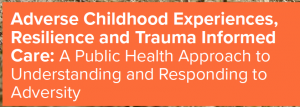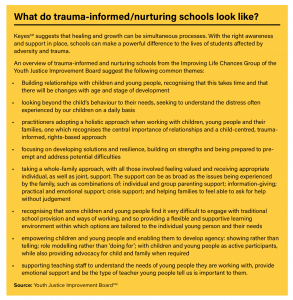Structured kindness; striking the balance between discipline and care in schools

A while ago I met twenty children from years 7 to 11 in a high school, for 1:1 Solutions Focused Coaching sessions. They’d been put forward as children finding life in school most difficult and beyond the reach of the established routines of reward and punishment behaviour management.
The group included;
A 12 year old who spoke in a whisper, who struggled to think of one thing that made her happy.
A 15 year old young carer with an unending story of loss, pain and distress, resolutely holding things together, almost.
A 14 year old living with a long-term unresolved family rejection and behaviour that flipped from perfect to pushy.
A year 10 student doing well across the curriculum but suddenly struggling with maths, when from as early as she could remember she’d had been top of the class.
A diverse group with a range of needs that could be met by Solutions Focused Coaching, strengths-based inquiry with a back of hope for the future.
Each meeting took around 30 minutes and in that time I was able to develop the Solution Focused relationship, ‘what’s going right?” in place of “what’s gone wrong?” The children all made progress towards their best hopes and carried away their own individual plan for success and a means of self-monitoring their hoped-for change.
Knowing when to shift from universal discipline to individualised care …….
Working in schools of all phases and types over the last 20 years I’ve found a common pattern.
I first noticed it in 1998. Starting in a new job as a specialist behaviour support teacher for Children’s Services, a high school head of Year 9 had asked for support.
“My whole year group is out of control.”
“All 200 of them? How many of those are really giving you problems?”
“Well, maybe 25, but it feels like all of them.”
“And how many of them give you the most worries?”
“About ten?”
It’s a small but significant number when taken together with the quietly underachieving children who keep their worries inside, eating away at them. Different needs maybe but all in need of timely help and support, for care.
…. by focusing on needs
The great majority of children in any school only ever give make minor errors that are corrected by normal teaching and learning routines; reminders, extra practice, overlearning. Given gentle steering, which might include experiencing the minor adverse consequences of less-than-best actions, they respond quickly and constructively with no lasting damage done by the manageable stress implicated. You could call this the discipline element.
The small minority need a different experience to meet their needs and they aren’t helped to learn and grow by being seen as the ‘others’, as the impossibles, the unteachables. You could call this the care element. External discipline applied as a flat response risks causing lasting harm either directly or by the use of exclusion.
All communities of people adopt rules and boundaries to be able to work in a self-motivated, self-disciplined way. All learning involves stepping out into unknown territory and carries an element of risk and stress which at low, manageable level powers attention, engagement and learning and the sense of achievement that goes with it. ‘Consequences’ operate in school systems at the first level of stress and the first level of response, staying back after class, a talk at break time, an inconvenience of some kind. From this starting point all children will know that they are valued and needed in the divers community of school but not made to feel shame or rejection in the process. There’s nothing new here, human communities have been self-regulating in this way since before human’s had spoken language, because we’re fundamentally social animals and we self-organise for survival.
Where there is a bigger change needed, where boundary is still being crossed too often, consequences will bring a higher level of stress, called resolvable stress. But given intelligent support and an empathetic relationship children can learn the lesson without being harmed, building their self-esteem and finding out about their own resilience in facing and overcoming the challenge. This is the second level of response.
Where a child experiences deeper trauma they can be supported through it, givenemotional support and care:
Our understanding of children’s development and learning has been transformed since the rats and pigeons of the behaviourist era, most significantly by the invention of computer driven brain imaging as recently as the 1990s. This technology enables us to move far beyond the model of the isolated brain as a ‘hard-skills’ mechanical information processing system to a new brain/body model that incorporates the emotional and social ‘soft skills’ that define ‘being human’. Complexity is the foundation of our new understanding and is beginning to power up school practice and practical theories of action.
Understanding the effects of stress and trauma are key to building evidence informed services in school.
What develops is an approach that starts where children are, rather than where the stages of a one-size-fits-all discipline system place them.
By understanding the meaning and effects of stress, it’s importance in learning and the necessity of putting the child at the centre of the strengths-focused support when stress becomes too severe, we can achieve great things by working together. Solutions Focused Coaching in schools provides the structure, simple, straightforward and quick acting.
The panel below gives an interesting overview.



